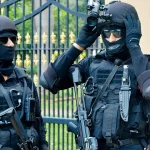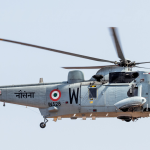The life of a Military Nursing Service (MNS) officer in India embodies a remarkable blend of healthcare provision, military discipline, and unwavering commitment to national service. This unique profession is reserved for women who not only excel in medical capabilities but also uphold rigorous military protocols. Their mission is not simply restricted to providing care for military personnel; it extends to high-pressure environments, including battlefields and disaster zones, where adaptability and resilience become essential. As we delve into the multifaceted roles and responsibilities of MNS officers, we will uncover the rich history, training demands, and challenges they face, all while exemplifying the values of courage and service.
Historical Context
The roots of the MNS can be traced back to 1926, when it was formally established as the Indian Military Nursing Service to support the British Indian Army. This was a pioneering step for women in the military, enabling them to serve in roles traditionally dominated by men. Following India’s independence in 1947, the service was renamed, reflecting the nation’s full sovereignty. The MNS has a proud tradition of contributing to significant military operations, including the arduous conditions faced during World War II. These historical milestones have laid the groundwork for the MNS, creating a legacy of strength, sacrifice, and professionalism that continues to inspire new generations of nursing officers.
Evolution of Military Nursing in India
- Pre-independence Era: Initially, nursing roles in the armed forces were largely occupied by British nursing staff, with a few Indian women beginning to infiltrate this domain.
- Post-independence Transformation: The establishment of the MNS post-1947 marked a significant transformation, as it facilitated Indian women’s entry into the military healthcare ambit.
This historical evolution is critical, as it reflects not only the development of nursing as a profession but also the rising recognition of women’s contributions to the military.
Roles and Responsibilities
MNS officers are entrusted with a plethora of responsibilities that extend beyond traditional nursing roles. Their duties are integral to maintaining the health and readiness of armed forces personnel, showcasing a convergence of healthcare excellence and military discipline.
Key Responsibilities:
- Healthcare Provision:
- Patient Care: MNS officers are responsible for administering comprehensive medical care to military personnel, including emergency treatments, routine check-ups, and chronic condition management.
- Mental Health Support: Their role also extends to psychological counseling, ensuring that personnel cope with the mental strains associated with military life.
- Military Integration:
- Adherence to Military Protocols: MNS officers function within structured military frameworks, necessitating compliance with stringent protocols and discipline.
- Collaboration with Other Military Units: They often work alongside other branches of the military, contributing to joint missions that require medical support.
- Emergency Preparedness:
- Disaster Response: Preparedness for natural disasters or battlefield emergencies is a key part of their training, requiring them to operate in high-stress environments effectively.
- Training Future Generations:
- Mentorship: Senior MNS officers often play a crucial role in training and mentoring junior nurses, shaping the future of military nursing.
With these responsibilities comes the necessity for MNS officers to possess a unique combination of nursing expertise and military acumen, empowering them to deliver care in the most demanding contexts.
Training and Preparation
Joining the MNS is not just a career choice; it’s a rigorous journey that begins with a significant commitment to training. Aspiring MNS officers undergo extensive professional education that encompasses both medical and military preparation.
Training Components:
- Professional Nursing Education:
- Candidates typically possess a B.Sc. in Nursing or equivalent qualifications, followed by a competitive selection process that ensures only the most qualified individuals join the ranks.
- Military Training:
- MNS officers receive comprehensive military training that includes physical fitness, weapon handling, and tactics. This multifaceted training prepares them for the challenges they may face during their service.
- Field Experience:
- Practical training in various military hospitals and field clinics provides hands-on experience in delivering care under pressure and in diverse environments.
The commitment to continuous learning is paramount. MNS officers frequently engage in further education and skill enhancement workshops to stay updated with advancements in nursing practices and military operations.
Statistical Data and Research Insights
Quantitative data relating to the MNS, while limited publicly, highlights the increasing recognition of the role MNS officers play within the Indian Armed Forces. Here are some insights to consider:
- Service Size: The Military Nursing Service comprises several hundred officers who actively serve across various military establishments throughout the country.
- Deployment Statistics: MNS officers often find themselves deployed in emergency scenarios, with many having served in UN peacekeeping missions, showcasing their international significance.
Though specific numerical data concerning salaries, promotions, or workforce distribution is not publicly detailed, the MNS is known for its high standards, demanding selection processes, and the essential role it plays in maintaining military readiness and healthcare.
Challenges and Solutions
While the journey of an MNS officer is filled with purpose and dedication, it is not without its challenges.
Key Challenges:
- Long Deployments:
- MNS officers frequently face extended periods away from home while serving in conflict zones or during humanitarian missions.
- Mental Health Strains:
- The high-pressure environment can lead to significant psychological impacts, including stress and anxiety, necessitating robust support systems.
- Balancing Dual Roles:
- Managing the dual expectations of military discipline and healthcare responsibility can be daunting.
Potential Solutions:
- Mental Health Support Systems:
- Institutions can enhance psychological support for officers, directly addressing the mental health challenges that accompany their service.
- Structured Work-Life Balance Programs:
- Creating programs that support officers’ home life, ensuring that family dynamics remain strong despite lengthy deployments.
- Training in Resilience and Adaptability:
- Including resilience training in military nursing education programs can equip MNS officers with tools to cope with the unique challenges they face.
Future Trends and Predictions
The future of the MNS seems poised to evolve in tandem with advancements in both healthcare and military practices. Key trends to anticipate include:
- Increased Integration of Technology: The advent of telemedicine and mobile health technologies may change how MNS officers deliver care, especially in remote or combat zones.
- Greater Focus on Mental Health Services: As recognition grows regarding the importance of mental health, MNS officers may receive more specialized training to provide mental healthcare.
- Enhanced Roles in Humanitarian Missions: As India engages more in global humanitarian efforts, MNS officers might find themselves increasingly involved in international peacekeeping and crisis response roles.
Conclusion
The life of an MNS officer is a testament to courage, resilience, and an unwavering commitment to serving the nation. These trailblazing women play a pivotal role in maintaining the health and readiness of the Indian Armed Forces, often operating in extreme and challenging environments where their skills are put to the test. Through rigorous training and a deep sense of duty, MNS officers embody the spirit of national service, ensuring that even in the face of adversity, the well-being of their fellow soldiers remains a priority.
As society becomes more aware of the invaluable contributions of women in the military, the future of the MNS holds promise for growth, innovation, and even greater service to the nation. By addressing the challenges they face and embracing emerging trends, the MNS can continue to stand as a pillar of strength within the Indian Armed Forces, ensuring that the legacy of nursing and military service remains intertwined for generations to come.











